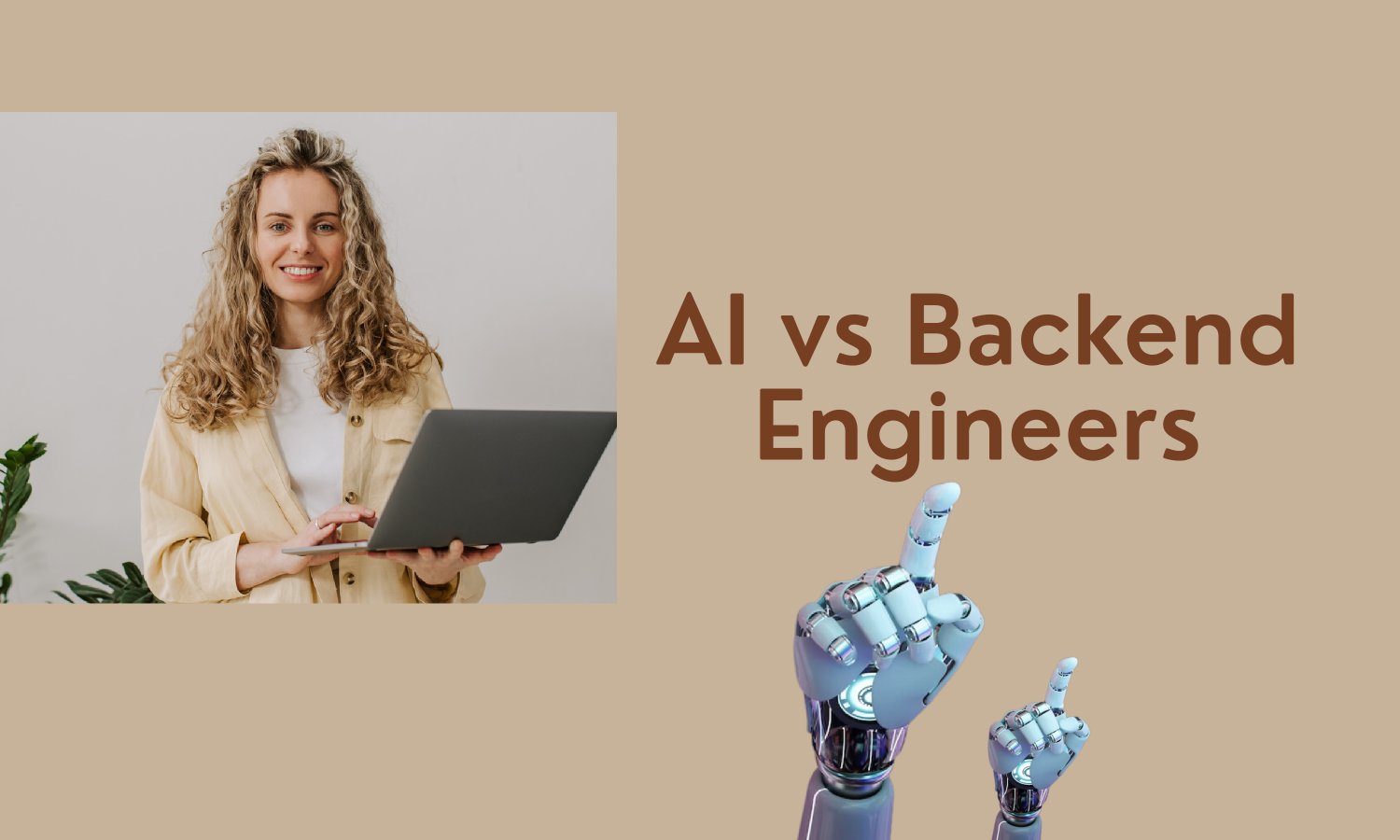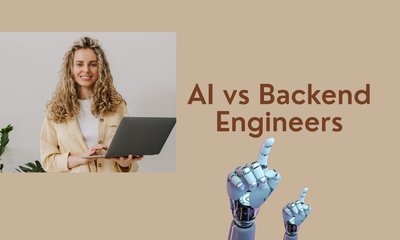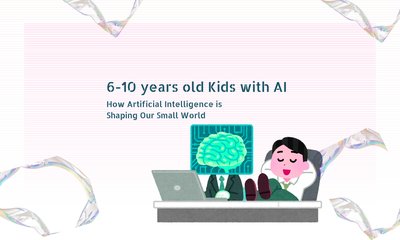How AI is Reshaping the Role of Backend Engineers — And How to Adapt
By khoanc, at: May 27, 2025, 3:32 p.m.
Estimated Reading Time: __READING_TIME__ minutes


AI (ChatGPT) is changing everything since 2024 - from how we write code to how we architect systems. For backend engineers, it’s not about “Will AI replace us?” but “How do we evolve alongside it?”
Let’s explore how AI is influencing traditional backend development, why senior engineers adapt faster, and what junior developers and freshers can do to stay relevant in the new era.
The Shift: From Manual to Intelligent Workflows
AI is no longer a buzzword in backend engineering. It’s becoming part of the daily toolkit:
-
Code generation: Tools like GitHub Copilot, Intellicode or ChatGPT can write entire boilerplate functions or suggest clean architecture patterns.
-
API design and testing: AI can generate documentation, simulate API usage, and auto-detect breaking changes.
-
Database optimization: AI models help analyze query performance, spot anomalies, and suggest indexes.
-
Monitoring and alerting: Modern platforms use machine learning to identify unusual behavior without manual thresholds.
This doesn’t mean backend engineers are obsolete, it means they’re shifting from builders of every brick to architects of smarter systems.
Why Senior Engineers Adapt Faster
Senior developers have:
-
Deeper context: They’ve already been through several tech waves (monolith → microservices, on-prem → cloud, manual → CI/CD). AI is another wave they can ride.
-
Critical thinking: They know how to question AI-generated code, spot edge cases, and think about trade-offs. THIS IS REALLY IMPORTANT now.
-
Ownership: Seniors don’t just write code, they think about design, scaling, security, and long-term maintainability. These are areas where AI still needs human guidance.
So while juniors might fear being replaced, seniors often see AI as a power multiplier.
But What About Juniors and Freshers?
This is where it gets tricky.
Many juniors rely on rote learning, following tutorials, Googling snippets, and mimicking code. But AI can now do most of that faster and better.
If you’re early in your career, here’s what to focus on:
1. Learn the Fundamentals
Don’t just memorize syntax. Understand how HTTP works, what a database index does, and why concurrency matters. AI can write code, but it can’t teach you how to think like an engineer.
2. Build Real Projects
Don’t rely solely on AI for answers. Work on side projects where you have to make design decisions, fix bugs, and refactor code. That’s where real learning happens.
3. Learn to Use AI as a Tool, Not a Crutch
Use Copilot, ChatGPT, or similar tools, but review everything. Ask why it works. Don’t just accept output - question it. Make AI your assistant, not your brain.
4. Improve Communication Skills
Writing clean PRs, documenting decisions, asking smart questions, these skills matter more in an AI-enhanced team. Humans who communicate clearly will lead the collaboration with AI.
5. Stay Curious
The best juniors are the ones who explore beyond their job. Read open source code. Follow backend trends. Learn how modern systems are built. Curiosity > credentials.
Final Thought
AI is changing backend engineering, but not replacing it. It’s removing repetitive tasks, but elevating the need for critical thinking, architectural design, and human judgment.
Senior engineers are already adapting. For juniors and freshers, the challenge is steeper, but the opportunity is massive.
“AI won’t replace backend engineers. But backend engineers who use AI will replace those who don’t.”
So stay sharp, stay curious, and keep building with AI as your sidekick, not your replacement.





